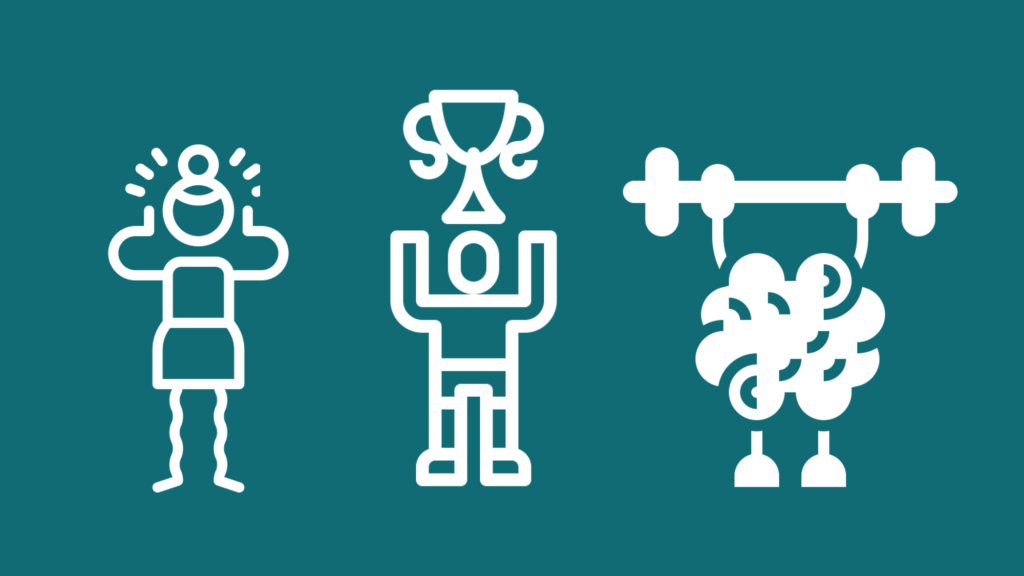How do you approach performance situations? Think your work, parenting, and education (current or past schooling).
People generally take one of three approaches:
- They attempt to avoid disapproval and negative judgments (Performance-Avoid Orientation)
- They attempt to outperform others operating in that space (Performance-Approach Orientation)
- They attempt to master whatever it is they are doing (Learning Orientation)
It turns out that the approach a person takes makes a world of difference in terms of how successful they will be.
Goal Orientation
These three approaches are called goal orientations. Goal orientations are one of the most frequently studied motivational variables in applied psychology.
One of the most interesting things about goal orientations is that we are generally not conscious of the orientation we operate from. Through life’s experiences and by default we hone in on and primarily rely upon one of these three orientations. In turn, the orientation that we adopt non-consciously dictates how we operate in our performance situations.
Let me better define each of these three goal orientations and describe how they non-consciously dictate how we operate.
Performance-Avoid Orientation
When someone possesses a Performance-Avoid Orientation, they are mentally wired to avoid disapproval and negative judgments from others. They are not very concerned about the quality of their performance. Rather, they seek to avoid looking bad. As a result, they generally do the minimum required to get by, and little more.

I think a great example of this orientation comes from a college student setting. If a student has a Performance-Avoid Orientation, they don’t really care how much they learn or perform (i.e., getting an ‘A’ grade), they just don’t want to fail.
Research over decades has found the following about those who adopt a Performance-Avoid Orientation. They:
- Rely upon surface-level learning strategies
- Are reluctant to seek feedback
- Experience greater anxiety
- Engage in less effort and are less persistent
- More likely to compete rather than collaborate
- More likely to cheat
- Less likely to adapt to change
- Generally perform at a low level (there is a negative relationship between Performance-Avoid Orientation and Performance)
Performance-Approach Orientation
When someone possesses a Performance-Approach Orientation, they are mentally wired to prove their competence and gain favorable judgments about it. They are generally very concerned about the quality of their performance, specifically in reference to others. Rather than wanting to avoid looking bad, they want to be seen as the best.

If a student has a Performance-Approach Orientation, they don’t really care about how much they learn, they just want to get a ‘A-grade’ or be top of their class.
Research over decades has found the following about those who adopt a Performance-Approach Orientation. They:
- Rely upon surface-level learning strategies
- Are reluctant to seek feedback
- Experience greater anxiety
- Engage in less effort and are less persistent
- More likely to compete rather than collaborate
- More likely to cheat
- Less likely to adapt to change
- Generally perform at a low-to-moderate level (there is a small positive relationship between Performance-Approach Orientation and Performance)
Learning Orientation
When someone possesses a Learning Orientation, they are mentally wired to develop their skills and abilities, advance their learning, and master the task at hand. They don’t care how they perform relative to others, just as long as they are truly learning and mastering whatever it is that they are doing.

If a student has a Learning Orientation, they aren’t overly concerned about what grade they get, only that they learn and master the material to its fullest extent
Research over decades has found the following about those who adopt a Learning Orientation. They:
- Rely upon Deep-level learning strategies
- Seek out feedback
- Experience less anxiety
- Engage in greater effort and are more persistent
- More likely to collaborate rather than compete
- Less likely to cheat
- More likely to adapt to change
- Generally perform at a high level (there is a moderate positive relationship between Performance-Approach Orientation and Performance)
Summary
My experience tells me that society and its related systems (e.g., education, business) socially incentivize the performance orientations. But, unfortunately, those are not optimal for success.
If we want to truly be successful, we have got to align our mind and our approach with success. We must take on a Learning Orientation.
To many of us, this is a foreign approach and it seems bass-ackward. But, if we can have the courage and will to adopt this approach, it will be a source of competitive advantage. If you look at the folks who are truly successful and that rise to the top in right and respectable ways, you will find that this is generally their approach.
If you want to learn more on this topic, check out this post: Becoming a More Positive Influence: Investigate and Improve Your Why










